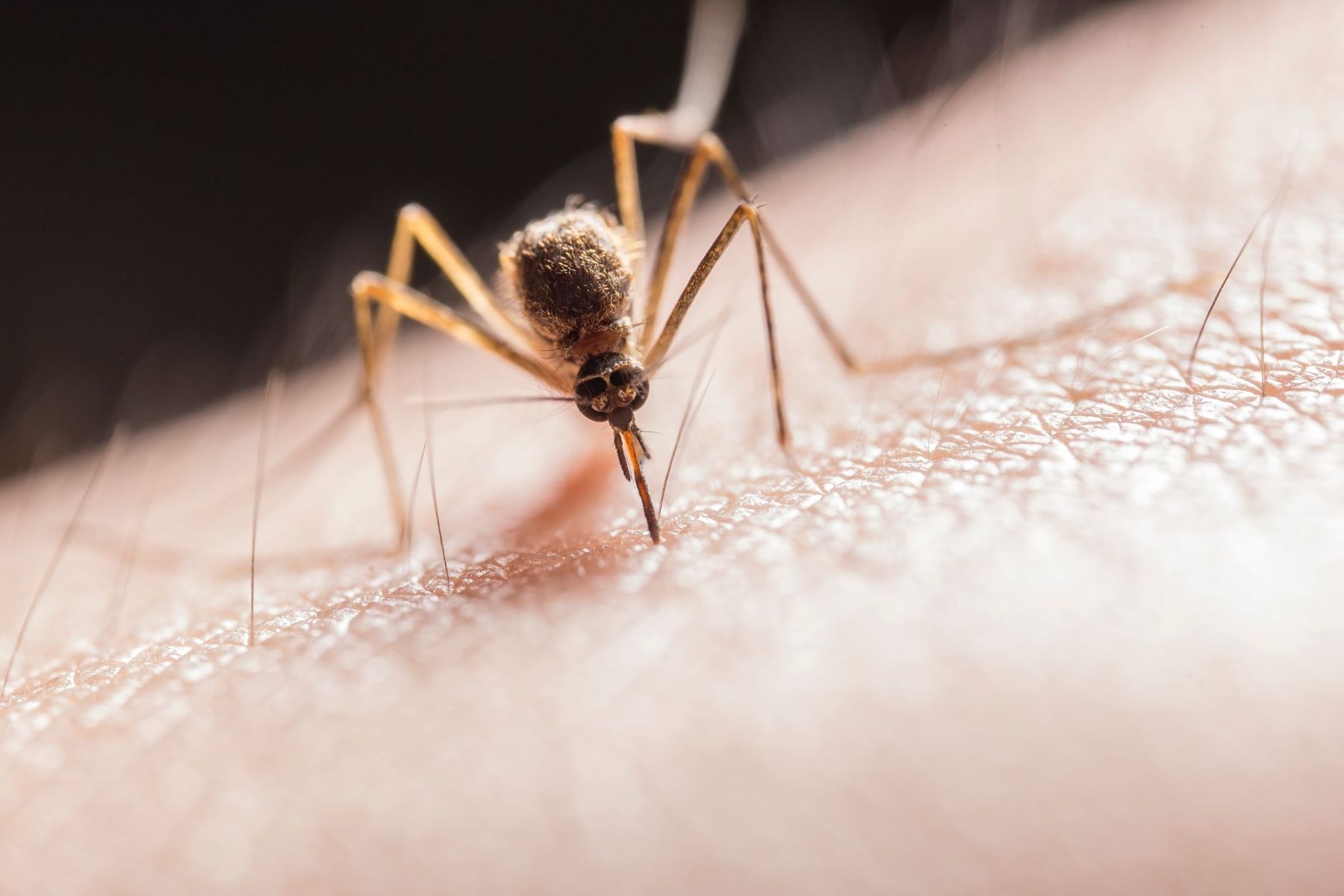
Dealing with Bugs of Summer, Naturally
Dealing with the Bugs of Summer, Naturally
Disclaimer: As an Amazon Associate I earn from qualifying purchases. I may earn a small commission when you click any link here to which supports Hazelnut Naturopathic Health. You are not charged any extra money if you decide to make a purchase, and you help fund a local business focused on improving the health and well-being of West Michigan.
The long days of summer beckon us to spend time outdoors--dining al fresco with friends and family, playing outdoor sports and activities, and taking advantage of every opportunity to enjoy the sunshine. The joys of summer also bring greater exposure to the bugs of summer including mosquitos, ticks, and stinging insects such as wasps and bees.
Dealing with the bugs of summer usually entails insect repellent of some sort. The majority of conventional insect repellent preparations contain a substance called DEET (N,N-diethyl-meta-toluamide) as the active ingredient. In 1998, the Environmental Protection Agency (EPA) concluded that DEET does not present a health concern as long as label directions are followed carefully and a list of "proper precautions" are observed with use. Not surprisingly, many clinicians and consumers have concerns about potential toxicity with prolonged or repeated use in humans, including damage to the nervous system. Fortunately, for those seeking to avoid unnecessary chemical exposure, there are a number of ways to minimize the risk of insect bites and stings. Then, you can enjoy the season with fewer worries.
How to Prevent Bug Troubles Naturally
Certain nutritional supplements can decrease our appeal to insect predators. Daily zinc supplementation has the potential to alter body odor so that bees are less likely to sting susceptible individuals without provocation. Early studies suggested that high doses of supplemental thiamine (Vitamin B1) might prove useful in repelling mosquitoes. Later studies have been inconclusive regarding use of thiamine for this purpose but with its low toxicity potential, its use may be worthy of a try. Clinicians reporting beneficial effects for thiamine as an insect deterrent report dosing thiamine between 50-300 mg daily. Ingestion of garlic has long been recommended as a potential mosquito repellent. However, it has shown more impressive results for preventing tick bites. A study involving Swedish military personnel serving in a tick-endemic area found a 30% reduction in tick bites in soldiers taking 1200 mg of garlic extract in a capsule form daily.
Topical Methods to Keep the Bugs at Bay
There are a number of natural options you can use for keeping the bugs at bay including:
Essential oils. Regarded as natural insect repellents, essential oils such as peppermint, eucalyptus, citronella, cedar, and many others essential oils can help. Essential oil combinations are found in natural insect repellent products, and it is relatively easy to make a mix of your own. Dr. Mary Bove recommends mixing together 15 drops each of lavender, citronella, eucalyptus, and pennyroyal with 1 oz of almond or olive oil. Apply this directly to skin or clothing to keep insects from biting. While some essential oils have proven effective at warding off insects for a short time, they generally require more frequent repeat applications than their chemically-derived counterparts. Remember to follow instructions carefully as essential oils are very potent. They should be used on clothing only with young children and avoid using with infants who may get this in their mouths.
Clothing Choices. Careful selection of clothing may also afford some protection against insect bites. During peak feeding times and when spending time in wooded areas, it is helpful to wear long pants, tucking them into socks or shoes to minimize areas of exposure. Mosquitoes and stinging insects are attracted to dark and bright colors, while light colored or muted clothing may help to deter insects.
Bodycare Products. Highly scented hair and body products are also attractive to some insects and may be best left out of your routine when you know you'll be outside. On top of that, you can use a natural bug repellent soap such as this if you can shower before heading outdoors which is safe for children.
Specifics for Mosquitoes and Ticks
To avoid mosquitoes, it is helpful to consider their breeding and feeding habits. Mosquitoes prefer to lay eggs in moist soil and in areas of poor drainage and stagnant water. Taking care to eliminate areas of standing water around the home and yard can help to limit breeding grounds. Timing is another key consideration. Mosquitoes experience their peak appetites at dusk and dawn each day. Further, they are most active in early summer and become less problematic by the end of July. Citronella candles or torches may be helpful if you have to be outdoors during these times.
Additionally, it is good practice to check skin thoroughly for ticks when coming in from outdoors. Although most ticks do not cause disease, the black-legged tick (or deer tick, Ixodes scapularis) can spread Lyme Disease in the northeastern, mid-Atlantic, and north-central United States. The western black-legged tick (Ixodes pacificus) can spread it on the Pacific Coast. Should you spot a tick on your body, use tweezers to carefully remove it as close to the skin as possible. Topical applications such as a match or petroleum jelly are not recommended. Consult with your doctor after a bite, especially if you develop unusual symptoms such as red, target-like rash near the attachment site or experience fever or flu-like illness. In Michigan specifically, you can submit a picture of a tick to identify it or you can mail the tick in.
Ways to Minimize Infections if You are Bitten
Finally, a few key precautions can be taken to minimize the risk of infection. For children, it is helpful to keep fingernails short and clean and discourage them from scratching the lesion as this may increase the risk of local infection. Be sure to wash the area if they do end up scratching the bite. For minor skin inflammation after a bite, a topical wash of calendula tincture, diluted 1:2 with water, functions as an antimicrobial and can decrease swelling. There are also a few common homeopathic remedies for bites. This includes Apis for red, swollen lesions that feel better with cold applications like water or ice. Ledum can be used for skin that feels cold and has a dusky purple appearance after a bite.
To wrap it up, with a little help from your natural medicine chest, you can use many simple ways to lessen the incidence of bites and stings. This makes it is easy to enjoy a carefree outdoor experience and peacefully coexist with the many bugs of summer.
References:
- Bove M. An Encyclopedia of Natural Healing for Children and Infants. Chicago: Keats Publishing, 2001.
- http://www.epa.gov/opp00001/factsheets/chemicals/deet.htm - Retrieved May 21, 2012.
- Gaby AR. Insect Repellents. Nutritional Medicine. Concord, NH: Fritz Perlberg Publishing, 2010.
- Kuhn MA, Winston D. Herbal Therapy & Supplements: A Scientific & Traditional Approach. Philadelphia: Lippincott Williams and Wilkins, 2001.
- Maia MF, Moore SJ. Plant-based insect repellents: a review of their efficacy, development, and testing. Malaria Journal 2011 10 (Suppl): S11.
- Steele, S. (1995). Summer's sting. Maclean's, 108(26), 46.
- Center for Disease Control. https://www.cdc.gov/lyme/transmission/index.html. Accessed 05/30/2022. Updated 01/29/2020
Photo by Jimmy Chan from Pexels

Leave a Comment
(0 Comments)